By Jill Habig, founder & CEO, Public Rights Project
A new extortion strategy is taking shape in the federal government — coercing local governments to accept extreme conditions on federal grants. The goal? To further the administration’s illegal and discriminatory policies in jurisdictions across the country.
Since taking office in 2025, President Donald Trump has issued sweeping executive orders that direct federal agencies to unlawfully freeze or terminate congressionally approved federal grants. And agencies are moving swiftly to implement them.
In April, the Department of Housing and Urban Development (HUD) and Department of Transportation informed local governments that they must agree to a new set of conditions in order to receive already-promised housing and transit grants. The conditions include supporting federal immigration enforcement; eliminating diversity, equity and inclusion (DEI) initiatives; excluding transgender people from services; and banning abortion access.
Local leaders face an impossible choice. Say yes to conditions that don’t serve their communities’ needs (and may violate state and local laws), risk prosecution if they give in but don’t actually comply, or resist and forfeit hundreds of millions of dollars in critical funding.
Every single one of us should be concerned. We’re witnessing a brazen attempt to undermine how our government works. Placing politically-driven strings on federal funding will harm individuals who rely on life-changing services, weaken local community infrastructure, and erode trust between voters and the leaders they elected to deliver on their priorities.
An emerging strategy to wield power
The administration’s effort to roll back, end, or impose extreme conditions on federal funding is driving us toward a different form of government. Most of us have never known a time where the federal government didn’t use our taxpayer dollars to provide crucial money to local communities. Since the New Deal, federal grants have closed financial gaps for state and local governments and provided the resources to help people meet basic needs and live with dignity.
To be clear, placing conditions on federal funding isn’t inherently wrong. The danger lies in how this administration is weaponizing these grants to advance its political agenda. This is not what Congress intended when it originally allocated the funding.
But it gets worse. In an attempt to chill activities that run counter to its political agenda, the administration has intentionally left the grant compliance criteria vague. Our local government partners worry this ambiguity opens them up to non-compliance and that they’ll be forced to restructure entire programs.
Conversations with local officials have also revealed fears about this approach opening the door to public enforcement by bad-faith actors or politically-motivated individuals. Under the False Claims Act (FCA), private citizens can sue a local government if they believe it hasn’t complied with the administration’s conditions. Each violation of the FCA is punishable by a civil penalty of up to $27,894, plus other charges so this could potentially cause serious financial consequences for a community.
Even the threat of these penalties may force grant recipients to concede. This private enforcement strategy echoes abortion “bounty” laws like SB8 in Texas that gave people an incentive to sue doctors and neighbors for delivering or helping someone access abortion care. It's a cynical strategy to pit people against each other and weaponize the law against those trying to serve their communities.
How cities and counties are fighting back
One of my biggest concerns with the administration’s latest maneuvering is the intended erosion of trust at a local level. More than $4 billion in federal grants are at stake across the 30 jurisdictions in our case alone. Forfeiting millions of dollars is simply not an option for many communities.
If local leaders obey the administration’s conditions, they betray voter trust by abandoning commitments to addressing discrimination, risking the safety of immigrants, undermining access to abortion, and other civil rights issues. That’s why we’re working directly with a coalition of jurisdictions that may be forced to carry out policies they disagree with — to the severe detriment of the people and places in their community.
Earlier this month, five counties and three cities filed a lawsuit challenging the administration’s illegal attempts to place extreme conditions on this funding. Public Rights Project is serving as co-counsel on the case, which now includes more than 30 cities and counties. The size of this coalition demonstrates the widespread harm caused by these conditions.
The lawsuit argues that the administration’s actions defy the separation of powers principle. We also point to a number of constitutional violations related to the Fifth Amendment, 10th Amendment, and Administrative Procedure Act. Our request for a temporary restraining order — to block the administration from moving forward for now — was recently granted by the court.
For centuries, the U.S. government has operated on a foundational principle: Congress holds the power to allocate federal dollars for specific purposes. The executive branch is responsible for disbursing those funds to state and local governments, which implement the programs that serve their communities.
Using financial leverage to override local authority is unacceptable and unconstitutional. We must stay alert, speak up, and hold the federal government accountable before these tactics become the new norm. This is just the opening salvo in this fight; these conditions are appearing in grant programs for public health, home energy initiatives, food access, and more, implicating tens of billions of dollars. We won't rest until communities get the benefits they've already paid for in taxes.





